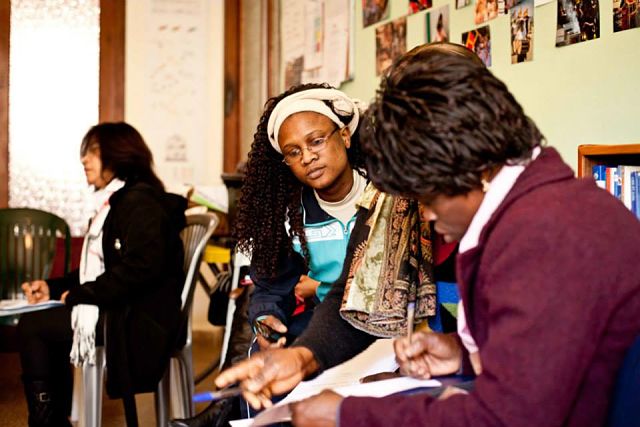 This is the second in a two part interview with Farah Salka of the Migrant Community Center in Lebanon. (Photo courtesy of MCC)
This is the second in a two part interview with Farah Salka of the Migrant Community Center in Lebanon. (Photo courtesy of MCC)
By Kumera Genet

The attack and subsequent suicide in 2012 of Alem Dechasa-Desisa–an Ethiopian Domestic worker in Lebanon–was a turning point in the consciousness of the Ethiopian and African Diaspora. The video of Ali Mafuz–Alem’s employer beating her in front of the Ethiopian Consulate in Beirut was one of the first widely shared visual examples of the exploitation that faces many African migrants in the Middle East. Due to a lack of resources and political organization, there have been few coordinated efforts by the African Diaspora to directly support migrant workers in the Middle East in three years since Alem’s death.
Often lost in the discourse around migrant rights is that there are local efforts in Lebanon–led by activists and the migrant worker themselves–to support the migrant worker community. I feel this is important context to better understand how individuals living outside of the Middle East can assist in improving the lives of migrants. The news that reaches the Diaspora is normally about the tragedies. This is an unsustainable way of engaging in the issue and in the interim between public abuses, there is little real relationship building with potential allies.
To this end, I spoke recently with Farah Salka who is the general coordinator of the Anti-Racism Movement in Lebanon which manages the Migrant Community Center in Beirut. The Migrant Community Center is one of the few open spaces for the migrant communities and domestic workers in Lebanon. There are more than 800,000 migrant workers in Lebanon and more than 250,000 serve as domestic workers.
They are currently fundraising to keep up, and hopefully expand, the services offered and donations can be made on their IndieGogo page:
Read the interview at Huffingtonpost.com »
Related:
Interview: Vital Collaboration with Migrant Community Center in Lebanon (Part One)
Join the conversation on Twitter and Facebook.

























